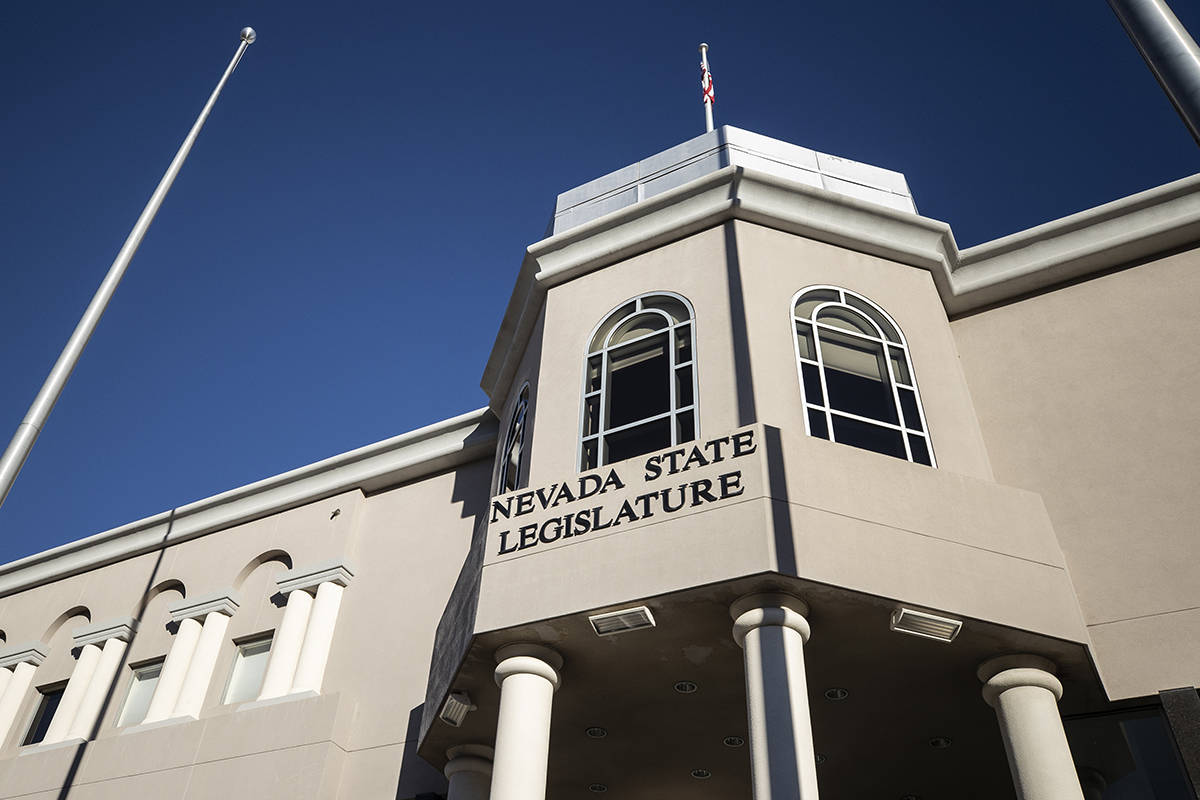Utilities object to bill aimed at reducing natural gas use
CARSON CITY — Utility companies and business groups are balking at a proposal that would lay the groundwork for Nevada’s eventual planned transition away from natural gas.
Arguments over the proposed bill Tuesday centered on balancing the need to move swiftly to address climate change through decarbonizing the state’s buildings versus protecting customers who might not have the financial means to transition to electric infrastructure and appliances.
As originally introduced, Assembly Bill 380 would have required an incremental decrease in the amount of natural gas used in homes and commercial buildings until virtually eliminating its use by the year 2050, goals that line up with the Nevada Climate Strategy that was released by Gov. Steve Sisolak’s administration in December.
But those year-by-year reduction marks were removed from the proposal through an amendment brought by the bill’s sponsor Assemblywoman Lesley Cohen, D-Henderson.
The amended proposal would require the state’s Public Utilities Commission to open an investigatory docket that would study the role of natural gas in the state’s efforts to reduce greenhouse gas emissions.
In addition, regulators would put a process in place that would force gas utilities to prove to regulators that any expansion or infrastructure replacement plans make “economic and environmental sense,” Cohen said during a hearing in the Assembly Growth and Infrastructure Committee on Tuesday.
”This is a part of planning for the future so that we can reduce our carbon emissions,” Cohen said.
Price increases?
Despite the changes Nevada’s two largest utility companies, NV Energy and Southwest Gas, expressed concern while testifying in opposition to the bill during Tuesday’s hearing about whether the proposal could cause price increases for customers.
“We are fully supportive of taking efforts in energy and reducing greenhouse gas emissions, but we are also very concerned about the needs of our customers here in Nevada,” said John Hester, president and CEO of Southwest Gas.
Dylan Sullivan, a senior scientist with the Natural Resources Defense Council who helped present the bill alongside Cohen, said that one focus of the bill is allow the state to have more control over future expansion plans from Southwest Gas and to determine if replacing thousands of miles of natural gas pipes would be necessary as the state moves away from the resource.
“What this bill will do is really just give the PUC the tools to evaluate that investment and make sure that it makes sense for the future direction of the state,” Sullivan said.
The long-term climate strategy released by the Sisolak administration in December laid out 17 policy changes for the state to address climate change and move towards net-zero greenhouse gas emissions by 2050, most notable among them a call to end gas-powered heating and cooking in homes and businesses.
Ernest Figueroa, Nevada’s Consumer Advocate, said that given the governor’s initiative that “it is imperative for economic reasons that natural gas resource planning be implemented so that natural gas utility customers are not left with billions of dollars of stranded assets when that time comes.”
Impact on elderly, poor residents
But some lawmakers and opponents of the bill raised more concerns about how the transition would affect the state’s elderly and low-income populations.
“Many older adults and lower-income Nevadans currently rely on natural gas to hear their homes, cook and to heat their hot water,” said Barry Gold, a lobbyist for AARP in Nevada. “It is cheaper to use natural gas to do this and forcing them to use electricity could only increase the difficulties they may currently already have choosing between buying food and medicine or heating their homes.
“We should not be asking grandma to rip out her water heater in her mobile home at great expense,” Gold added.
But Cohen pushed back on those concerns, saying that the bill would only force gas utilities to show that their investment plans are economically and environmentally viable for the state, and would not force people to replace their gas appliances.
“The proposal doesn’t force anyone to change anything, but it does ask us to look at where we are headed, where we want to go and for us to choose wisely,” Cohen said. “This is an issue we can’t ignore any longer.”
Contact Capital Bureau Chief Colton Lochhead at clochhead@reviewjournal.com. Follow @ColtonLochhead on Twitter.



















